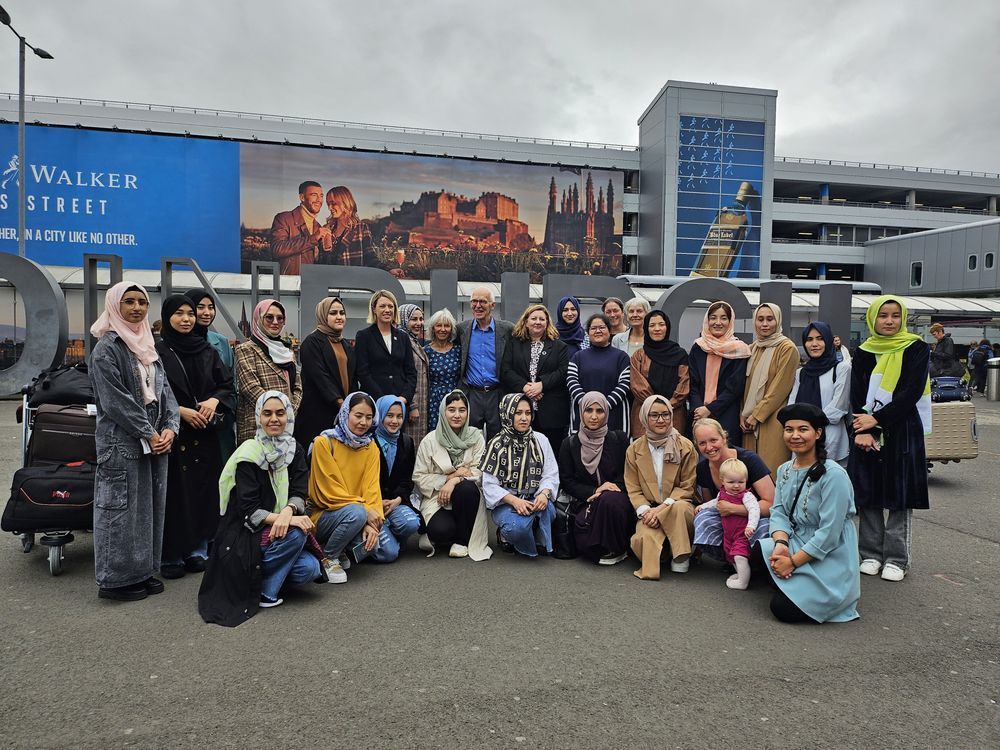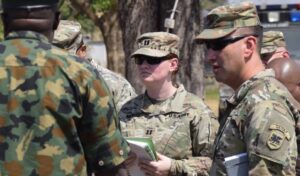
Zahra Hussaini didn’t give up on her dream of becoming a doctor when a car bomb exploded outside a school near her home in Kabul in 2021, killing dozens of schoolgirls and sparking fears that her classrooms might be next.
She didn’t give up months later, when the Taliban took over Afghanistan, nor when the regime banned female students from attending universities in late 2022, months before she was set to complete her first year of medical school.
It took another 18 months of uncertainty – and a rewriting of student funding laws in the Scottish Parliament – but next week, Hussaini’s dream will continue more than 3,000 miles away. She and 18 other female Afghan medical students are resuming their studies at Scottish universities after a British nonprofit concluded a years-long effort to bring Afghan women to the country and enroll them in schools.
“It [is] going to be a new chapter of my life,” Hussaini, 20, told The Washington Post.
Lorna Norgrove, a trustee of the Linda Norgrove Foundation, the nonprofit that campaigned to bring Hussaini and her peers to Britain, said the effort was the first of its kind in Scotland. It was made possible by Scottish lawmakers amending educational policies to secure free tuition for the Afghan students, Norgrove said.
“It’s a great achievement,” she said. “And it’s just a relief to have them here.”
The Linda Norgrove Foundation was founded by Lorna and John Norgrove and named after their daughter, an aid worker who was kidnapped in Afghanistan and killed in a rescue attempt in 2010. The organization had previously sponsored roughly 100 scholarships for women studying in Afghan universities, including Hussaini, when the Taliban took over the country.
As the Taliban began imposing restrictions on girls’ education, the Norgroves watched nervously from Scotland.
“Our students have gone from being trainee doctors to facing a closed existence, consigned to cooking, cleaning and looking after children,” John Norgrove said in a statement in September 2023.
In high school, Hussaini had already endured the terror of one of Kabul’s grisliest school attacks. The bombing, which left more than 90 people dead, and other attacks on students in Afghanistan had spurred her to want to become a doctor. After living through that, she said, the Taliban’s prohibitions on women’s education were too much to bear.
“It made even the pain or the suffering [hurt] much more,” Hussaini said.
The Taliban’s steady rollback of women’s freedoms has forced Afghan women and girls to take desperate, clandestine measures to continue their education, The Post has reported. Some attend underground schools. Others learn languages and take classes online. The Norgroves lobbied for students sponsored by their foundation to be allowed to come to Scotland through a resettlement scheme for Afghan refugees and secured approval from several universities to admit around 20 students.
In 2023, the Norgroves were stonewalled when the British government informed them that the students wouldn’t be eligible for the country’s resettlement scheme, and would need to apply for student visas and pay out-of-state tuition of around $65,000, the foundation said.
Hussaini and her peers couldn’t afford that. Neither could the Linda Norgrove Foundation. Privately, Hussaini also worried about passing the necessary language exams and continuing her studies in another country, in English.
“At the beginning, it looked kind of impossible,” she said.
Hussaini’s family gathered their savings to pay for her to take English lessons. In her spare time, she downloaded digital copies of English textbooks, printed them and recited them in front of her mirror.
The Norgroves, meanwhile, pursued their own long-shot bid to fund the students’ education. Scottish residents who are undergrads at Scottish universities have their tuition funded by the state – a privilege that was also extended to some evacuated Afghan refugees in the country, but not to those entering on student visas. Could the foundation’s Afghan students be given an exception to receive the same funding once they arrived?
“Last October, we thought, ‘Right, we’ll have one last-ditch dance,’” John Norgrove said. The foundation urged supporters to write to their members of parliament about the issue.
Buoyed by support from Scottish Parliament members, the Norgroves’ appeal eventually compelled the government to amend Scottish legislation to grant free tuition to Afghan women who’ve had their studies interrupted, the Scottish government announced in August.
“I think everybody on both sides of the government actually thought that this was just the right thing to do,” said Matthew Forbes, head of international affairs and security policy at Britain’s Scotland Office.
Hussaini and her peers applied for their student visas at the British High Commission in neighbouring Pakistan, completed the necessary paperwork and English language tests, and finally set off to continue their studies in August. They arrived in Scotland on Aug. 19 and travelled on taxis and trains to the four universities that had accepted them.
Hussaini, who is now enrolled in the University of Glasgow’s medicine program, has spent the weeks since adjusting to her new surroundings. Her neighbours and the university staff who helped her move in were friendly, and London’s Afghan restaurants feel like home, she said.
She has also overcome her anxieties about studying in English.
“I am the girl who could not speak in front of two people in a very small class,” Hussaini said. “But now I can speak like in a live program in [the] U.K. It was a kind of victory for me, that finally my hard working paid off.”
Hussaini’s classes haven’t started yet, but she’s already thinking ahead to when she reaches her goal of becoming a doctor.
“I really want to go back to Afghanistan and work and serve my own people,” she said.







